Photographs: Adrees Latif/Reuters
The Foreign Policy magazine has released its annual 'Failed States Index'.
The average score on the 2013 index, prepared in collaboration between the Foreign Policy and Fund For Peace, has remained more or less steady from year to year.
Somalia continues to top the 'Failed States Index' like it has for the past six years.
Even though India improved upon its ranking (79 out of 178) compared to 2012 -- climbing two spots -- the country is still not out of the woods in the danger list owing to starkly uneven economic development and widespread poverty.
India's neighbours -- Pakistan (13), Bangladesh (29), Nepal (30) and Sri Lanka (28) -- also feature in the list.
Let's take a look at the list of top failed nations
...
Rank # 1: Somalia
Image: A Somali soldier carries his gun as he patrols near the scene of a suicide bombing at a small tea shop inside the Presidential Palace in southern MogadishuPhotographs: Feisal Omar/Reuters
Somalia once again (sixth time) tops the failed nations’ list.
Though Somalia has shown some improvement following the inauguration of an internationally-recognised government in 2012, the Foreign Policy magazine says that the country remains effectively divided and barely governed, with the northern provinces of Somaliland and Puntland functioning like independent states.
Its per capita GDP of $115 is the lowest in the world, and human development indicators remain discouraging and in many cases non-existent, it added.
Click on NEXT to go further...
Rank # 2: Congo
Image: A Congolese Government soldier walks on the road towards Sake holding his daughter's hand, near the city of Goma in eastern CongoPhotographs: Reuters
There’s no democracy in the Democratic Republic of Congo.
The country, the study says, offers a brutal life to the majority of those who live within its borders.
Foreign Policy says, 'The country resembles not so much a failed state but as a state that doesn't exist at all. Multiple armed groups use this lawless land as a hideout, and the country's eastern region has been repeatedly referred to as the 'rape capital of the world'.'
Click on NEXT to go further...
Rank # 3: Sudan
Image: A Sudanese woman and her child wait for test results at a hospitalPhotographs: Adriane Ohanesian/Reuters
Two years after being spilt into two, the East African nation of Sudan is still far from stable.
The Foreign Policy magazine says, “An estimated 655,000 people have been displaced because of fighting between the army and rebel groups since South Sudan achieved independence in 2011, and violence has continued in the country's war-torn region of Darfur.’
‘The United Nations has warned of a looming humanitarian crisis due to fighting in the Sudanese provinces of South Kordofan and Blue Nile, and tensions with South Sudan remain high.’
Click on NEXT to go further...
Rank # 4: South Sudan
Image: A refugee woman from Jonglei State in South Sudan sits inside a temporary shelter with her child at the registration centre in a refugee campPhotographs: Reuters
The youngest country in the Failed States Index, South Sudan has struggled to establish a functioning government since its 2011 declaration of independence.
The magazine says, 'The suspension of oil production (due to conflicts with Sudan) further damaged South Sudan's economy, and rivalries and clashes with rebels threaten the fragile peace between the two neighbours.'
Click on NEXT to go further...
Rank # 5: Chad
Image: A child stands in front of cars burned during the rebels' last attack in AdrePhotographs: Emmanuel Braun/Reuters
Here's yet another African nation topping the infamous chart.
Chad has struggled with acute poverty; 62 percent of the population lives on less than $1.25 a day; and the average adult receives just one and a half years of schooling.
The landlocked country is flanked by instability, with Sudan to the east and the Central African Republic to the south.
Click on NEXT to go further...
Rank # 6: Yemen
Image: Followers of Yemen's al-Houthi Shi'ite group ride a motorcycle while carrying weapons, in the northwestern province of SaadaPhotographs: Mohamed al-Sayaghi/Reuters
Terror and hunger -- these are the two issues that have plagued Yemen in recent years.
The rate of hunger in the country doubled between 2009 and 2012, according to the World Food Programme, and rising food and fuel prices amid political turmoil have compounded the problems.
According to the FP magazine, ‘As of May 2012, 10 million people -- 44 percent of the population -- did not have enough to eat, and 5 million needed emergency aid. The country is also rapidly depleting its water supply; the capital could run dry in the next decade, and in some cities tap water is only intermittently available.’
Click on NEXT to go further....
Rank # 7: Afghanistan
Image: A local Afghan man waits while soldiers in the Afghan National Army's 6th Kandak (battalion), 3rd company search his homePhotographs: Andrew Burton/Getty Images
The decisive moment in Afghanistan’s history will come in 2014 when the United States withdraws its troops and the country goes to polls to elect President Hamid Karzai’s replacement.
According to FP magazine, 'The country remains entirely reliant on foreign assistance. In 2012, the World Bank estimated that 97 percent of Afghanistan's GDP came from foreign aid, and the corruption associated with this aid was illustrated by reports in April that the CIA has been dropping off bags of cash at President Hamid Karzai's offices.’
‘Women are institutionally oppressed by the country's legal system -- more than 600 women are awaiting trial on charges of being raped or running away from abusive homes.
...
Rank # 8: Haiti
Image: A man pushes his cart of mixed beverages through dirty water along a street in Port-au-PrincePhotographs: Swoan Parker/Reuters
Haiti never really recovered from the massive earthquake that rocked the island nation three years ago.
The FP states, 'Billions of dollars in pledged aid for reconstruction has yet to materialize, and around three-quarters of Haitians are either "unemployed or trying to make ends meet in the informal economy.'
'The country has not received adequate funding or supplies to address a still-ongoing 2010 outbreak of cholera that has resulted in 'unnecessary deaths'. But despite this, luxury hotels are still opening in Haiti, and the country is trying to brand itself as a destination for adventure-seekers.'
Click on NEXT to go further...
Rank # 9: Central African Republic
Image: A man waits to register at a hospital run in parternership with Doctors Without BordersPhotographs: Spencer Platt/Getty Images
Political turmoil has derailed the recovery process in the Central African Republic.
According to media reports, the country has had a series of coups d'etat since gaining independence in 1960. It received abysmal scores for refugees and security apparatus, and bad scores for everything else.
Click on NEXT to go further...
Rank # 11: Zimbabwe
Image: A vendor sorts her vegetables at a market outside of HararePhotographs: Siphiwe Sibeko/Reuters
Zimbabwe has shown considerable improvement in its ranking (it was ranked fifth last year).
According to Foreign Policy, Zimbabwe's days of infamous runaway inflation appear to be over, and the International Monetary Fund has taken steps to begin a fiscal monitoring programme -- a significant improvement from just earlier this year, when only $217 remained in the government's public account. The European Union also suspended sanctions on many top officials.
Click on NEXT to go further...
Rank # 11: Iraq
Image: A man smokes a cigarette as he sits at the site of a bomb attack in KirkukPhotographs: Ako Rasheed/Reuters
Nearly two years since US forces left the country, Iraq is still limping.
The FP says, ‘The country is racked by sectarian violence that many fear will spiral into full-blown civil war. Mostly Sunni insurgent groups are still doing battle with the fragile government, led by Shiite Prime Minister Nouri al-Maliki. More than 1,000 Iraqis were killed this past May, making it the deadliest month for the country in five years.’
Click on NEXT to go further..
Rank # 12: Ivory Coast
Image: A soldier of the Ivorian Army gestures during a patrol in DabouPhotographs: Thierry Gouegnon/Reuters
Ivory Coast has faced political instability for more than a decade, and the country is still contending with the aftermath of a dramatic 2010-2011 standoff in which incumbent President Laurent Gbagbo refused to step down after losing an election, says the Foreign Policy Index.
Click on NEXT to go further...
Rank # 13: Pakistan
Image: A supporter of the Pakistan Muslim League -- Nawaz (PML-N) party shouts slogans with others waving the party flagsPhotographs: Mian Khursheed/Reuters
Pakistan is going through a transition, but its woes are far from over.
The Foreign Policy magazine comments, ‘The newly elected government has plenty of problems to contend with: Taliban-linked insurgencies in the tribal regions, ongoing border tensions over Kashmir, and the illegal drugs that continue to flow into Pakistan from Afghanistan.’
Besides India’s neighbouring country has also been plagued by sectarian violence.
Click on NEXT to go further...
Rank # 14: Guinea
Image: A bread seller waits for customers at Nafaya Junction in ConakryPhotographs: Luc Gnago/Reuters
Guinea remains one of the poorest countries in West Africa.
Major human rights issues include torture by security forces and abuse of women and children through acts like female genital mutilation.
Click on NEXT to go further...
Rank # 15: Guinea-Bissau
Image: student Rachid Malam peers off the edge of a colonial-era dock on the island of Bolama in Guinea-BissauPhotographs: Joe Penney/Reuters
No leader has served a full term since Guinea-Bissau's independence. That, perhaps, says it all.
Click on NEXT to go further...
Rank # 16: Syria
Image: A Free Syrian Army fighter makes tea in Deir al-ZorPhotographs: Khalil Ashawi/Reuters
The civil war in Syria grows bloodier and more destructive every day, with the conflict's death toll recently reaching nearly 93,000, says the Foreign Policy journal.
It further states, ‘The Obama administration's recent decision to provide small arms to the rebels is unlikely to change the military balance of power significantly, and a conflict that began with largely peaceful protests against Syrian President Bashar al-Assad's rule has grown increasingly sectarian in nature.’
...

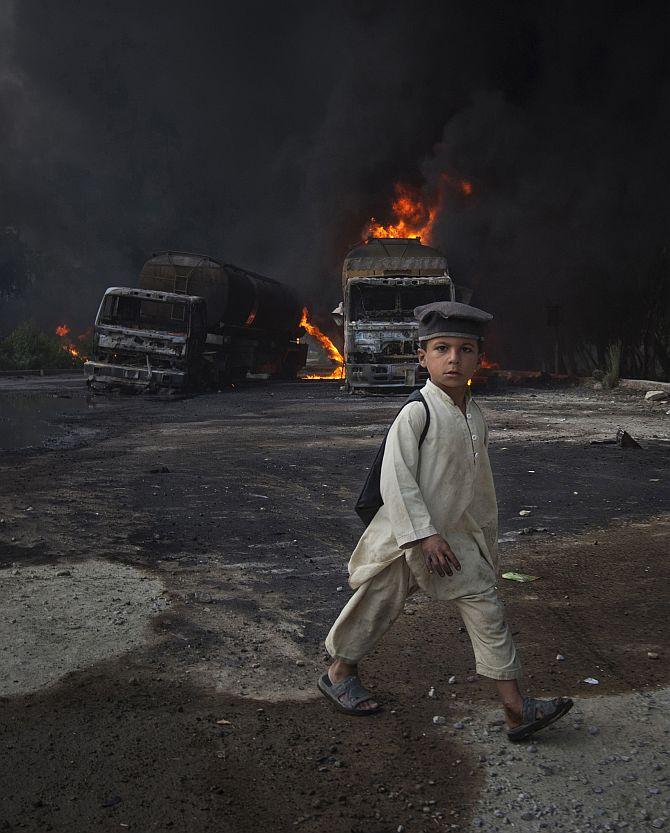
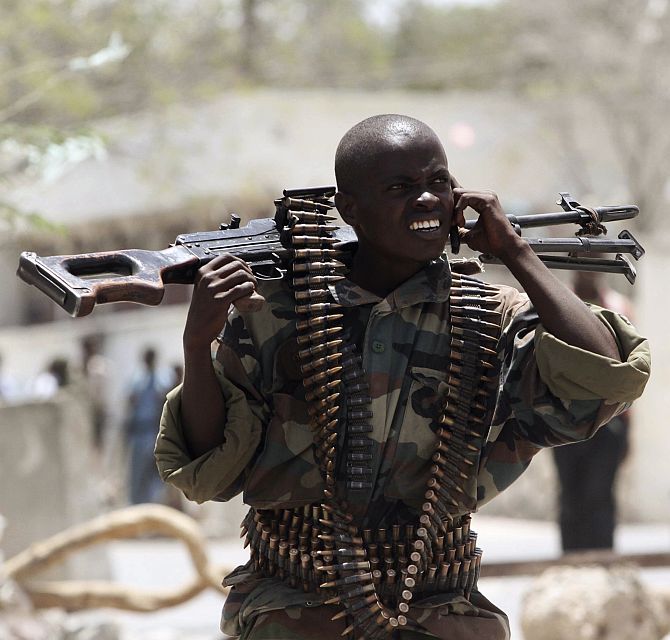
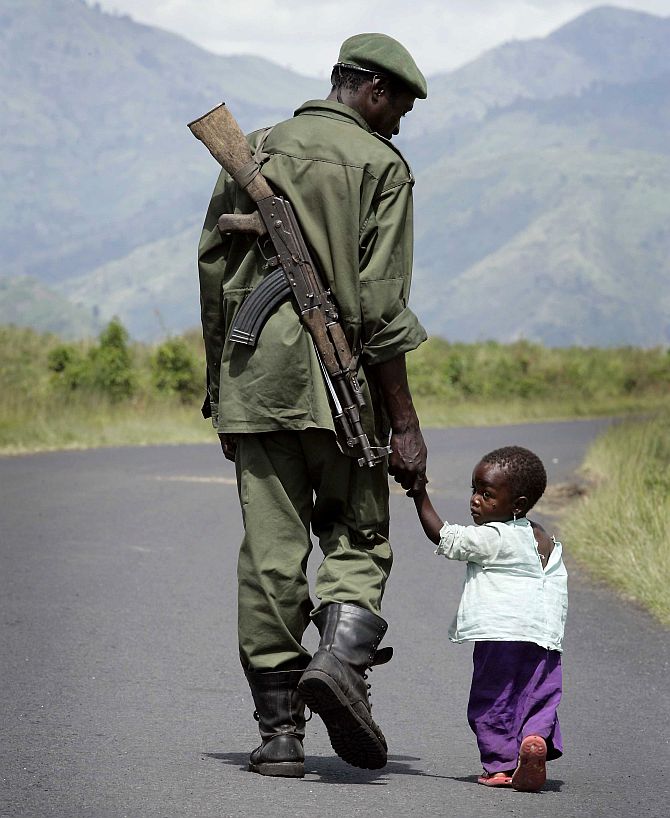
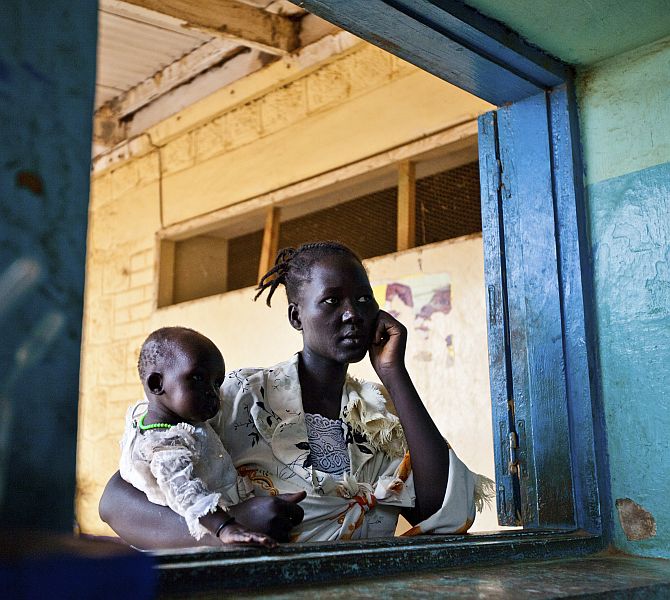
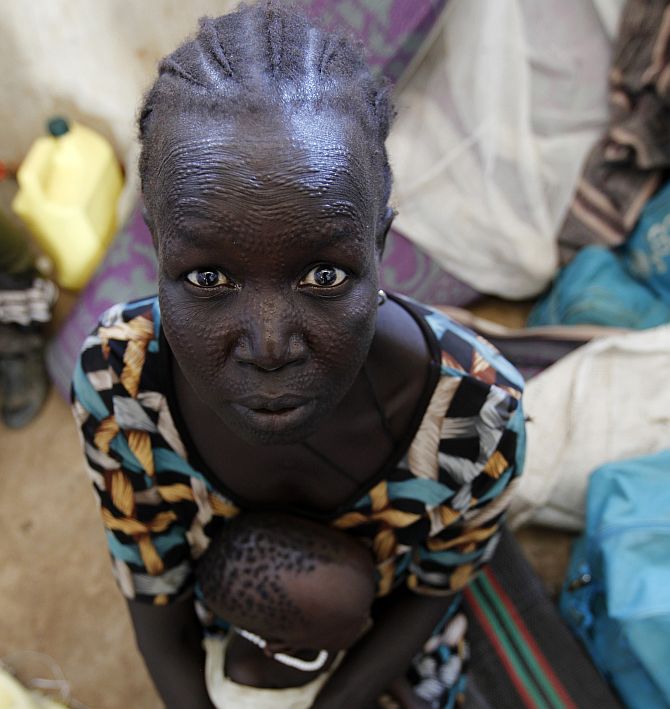
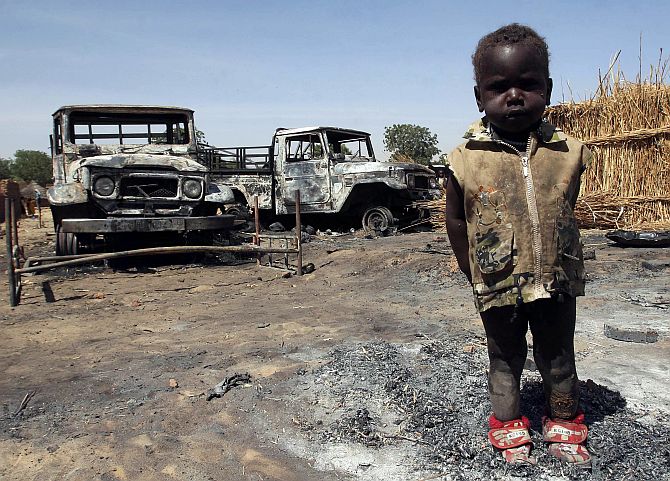
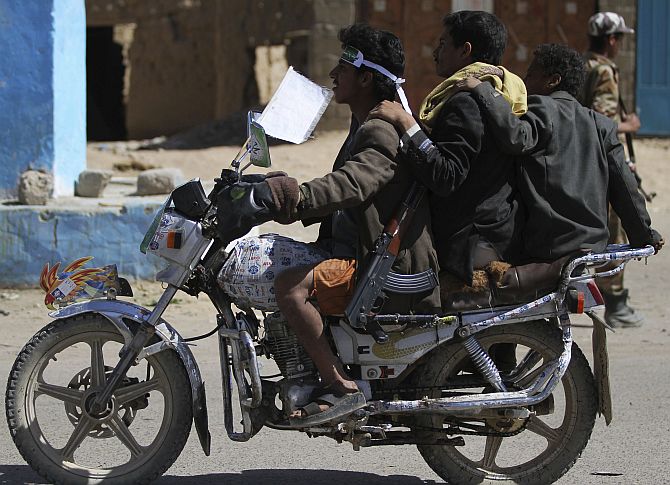
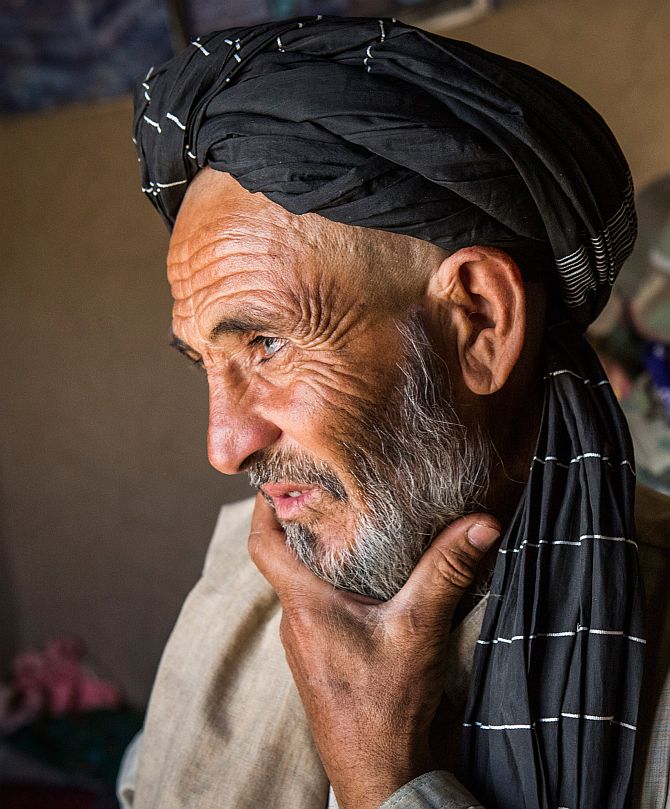
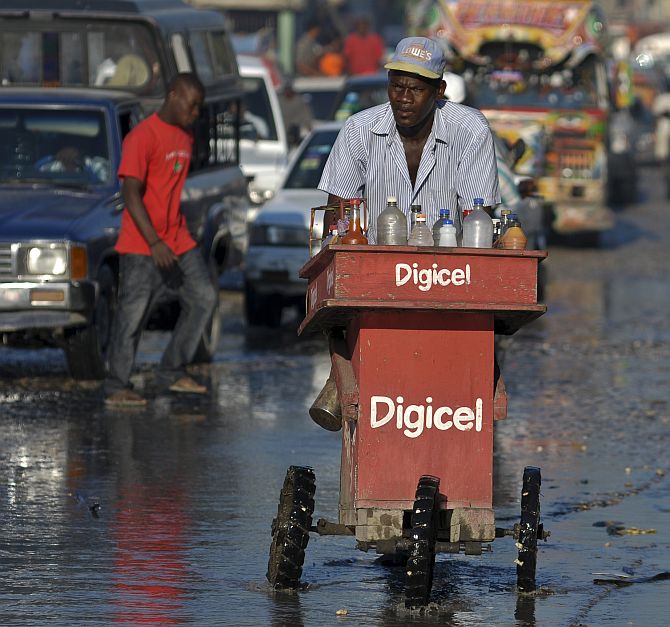
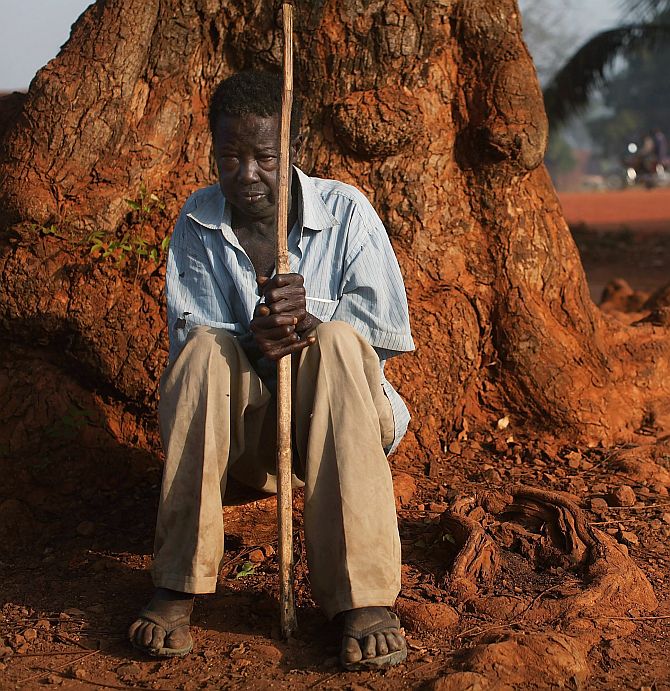

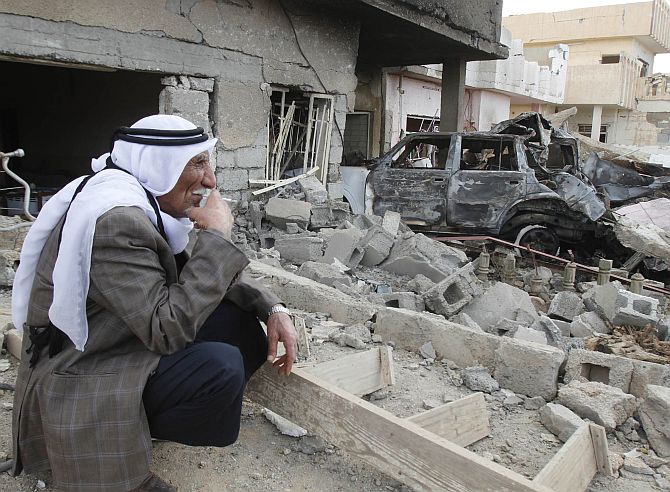
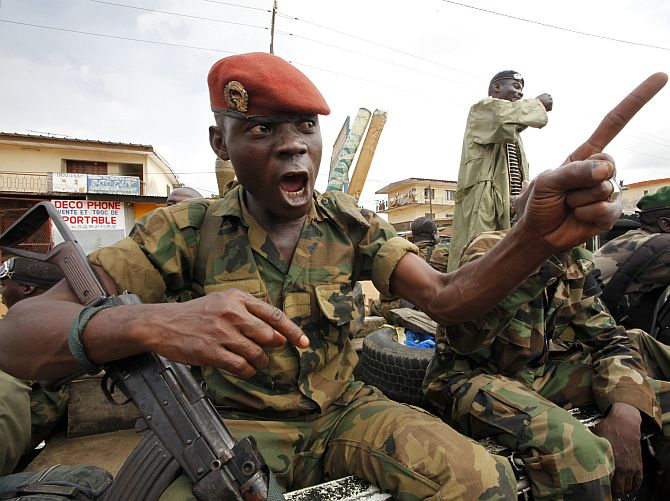

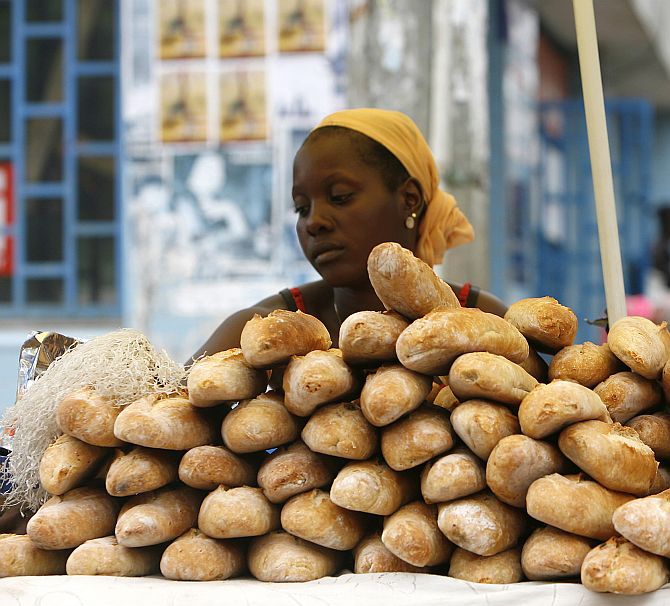
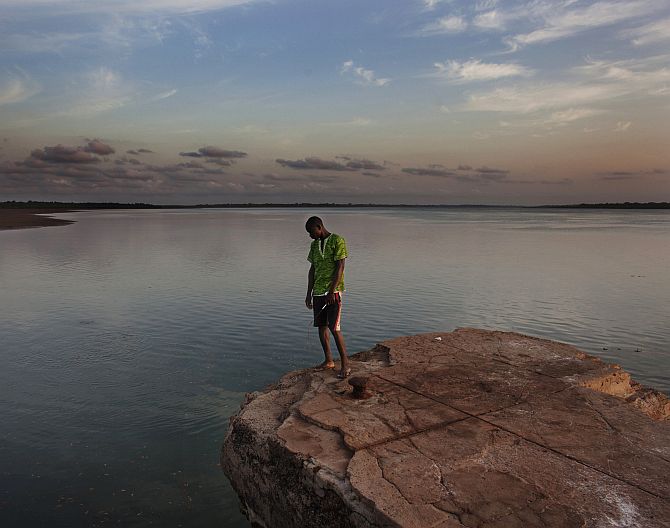
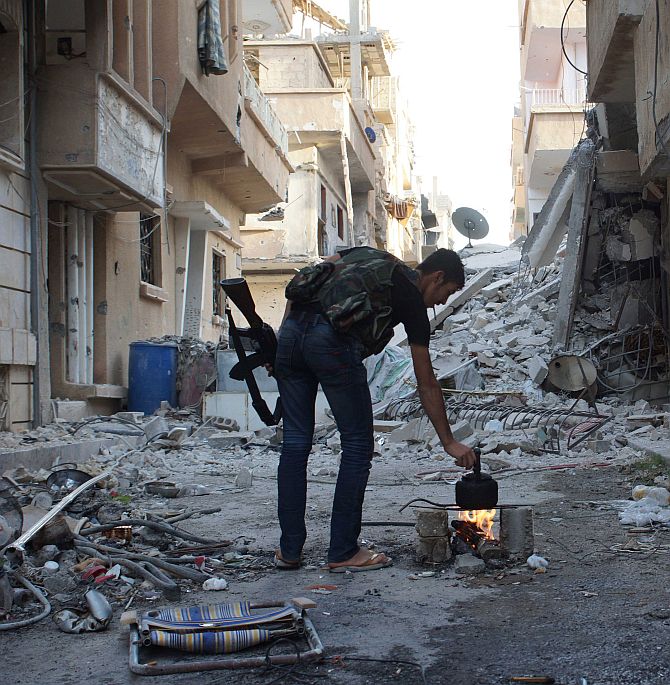
article